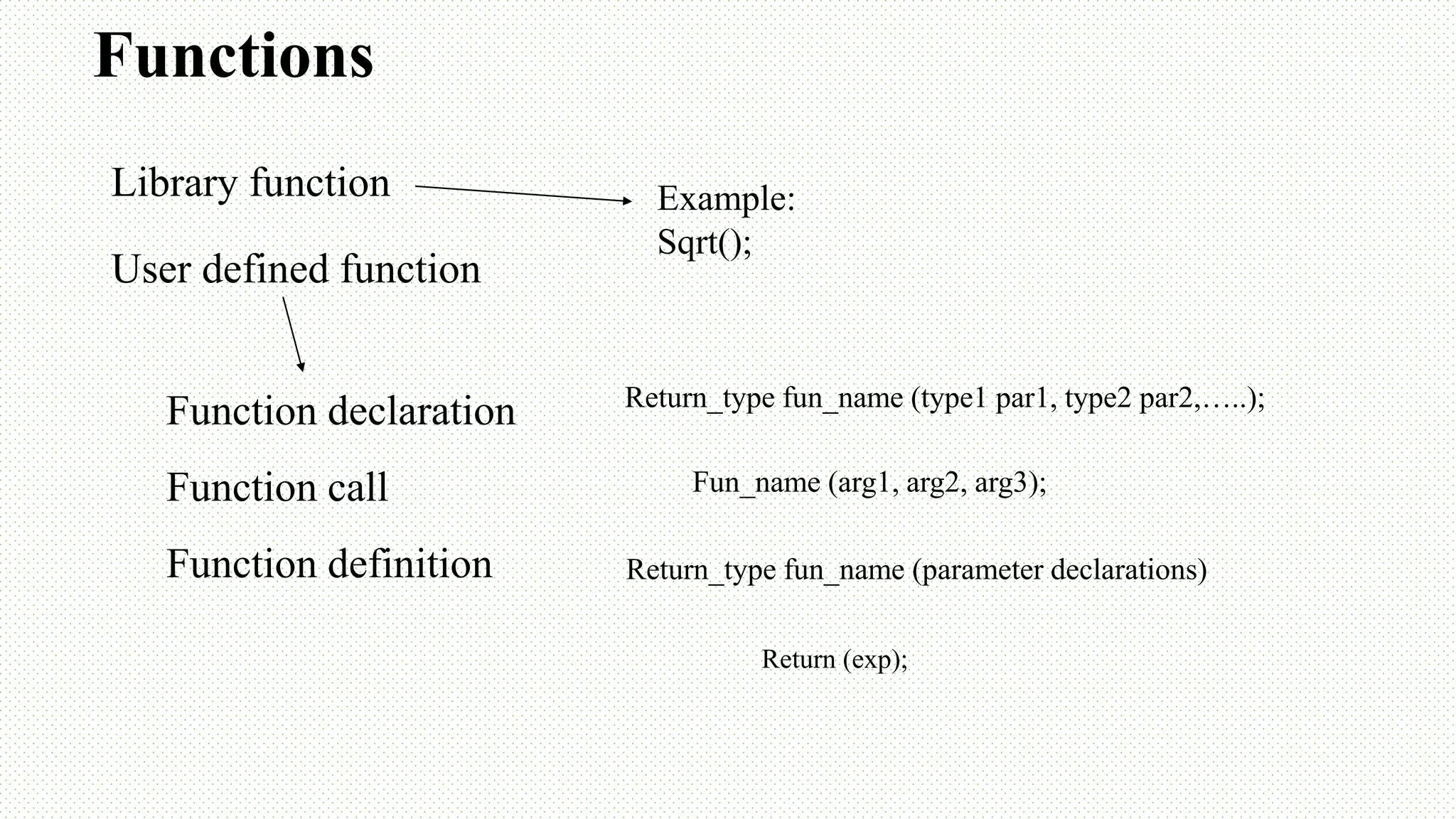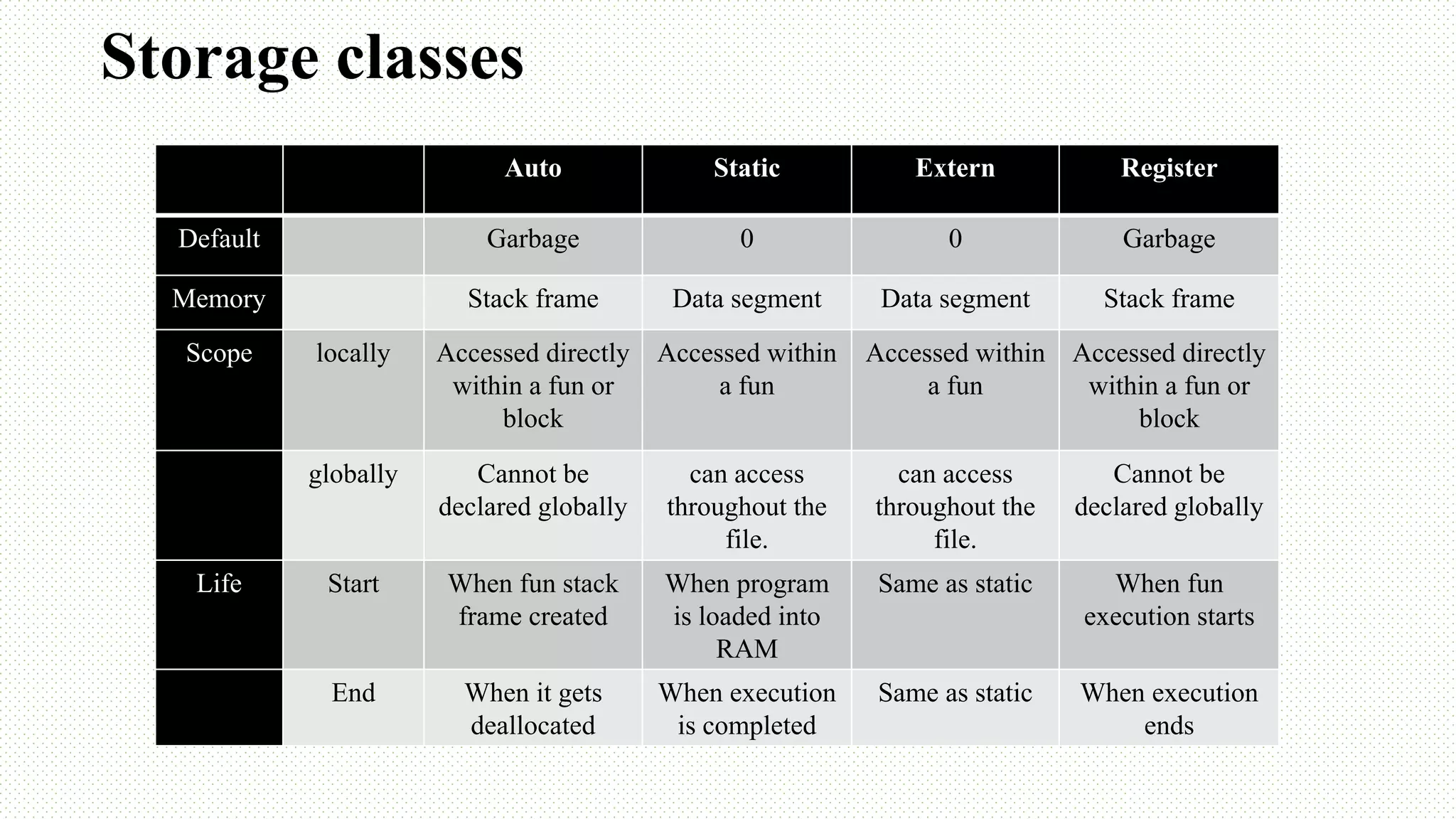The document serves as an introduction to the C programming language, covering its structure, data types, operators, control statements, error types, functions, and storage classes. It describes how to compile and execute C programs and details various constructs like loops, conditionals, and arrays with examples. Additionally, it explains compiler errors and different data types, emphasizing the organization and functionality of C programming.
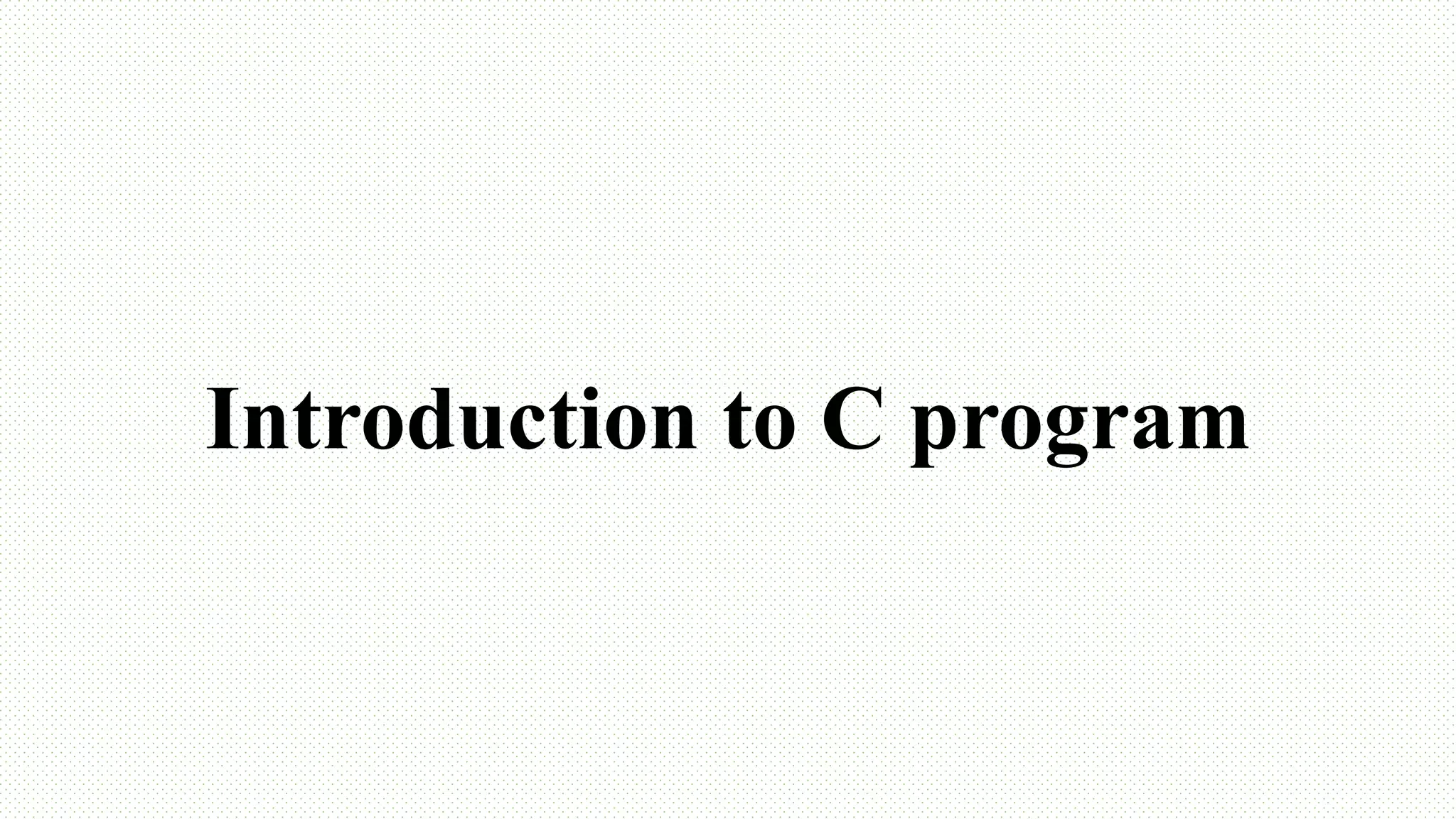
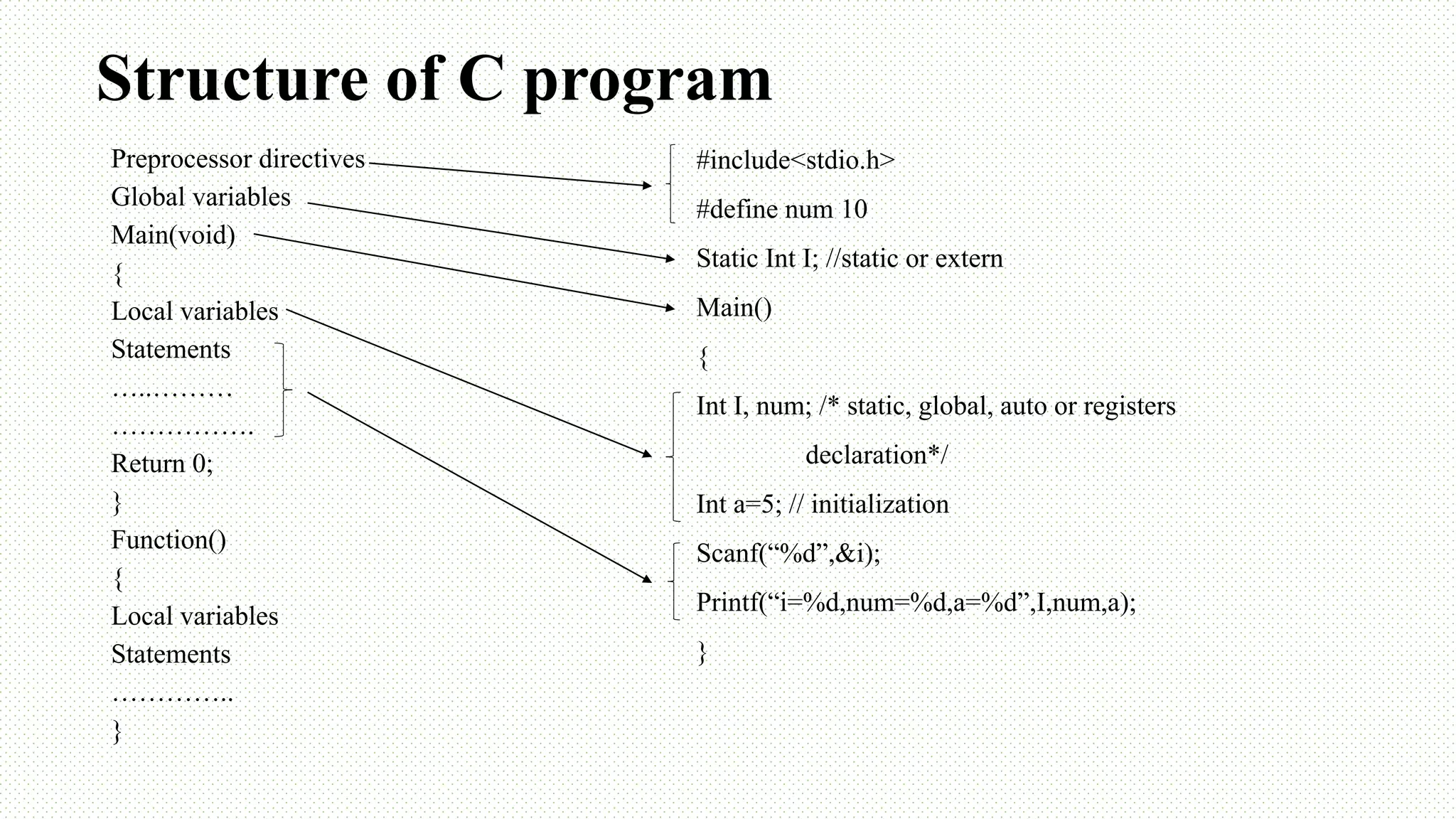
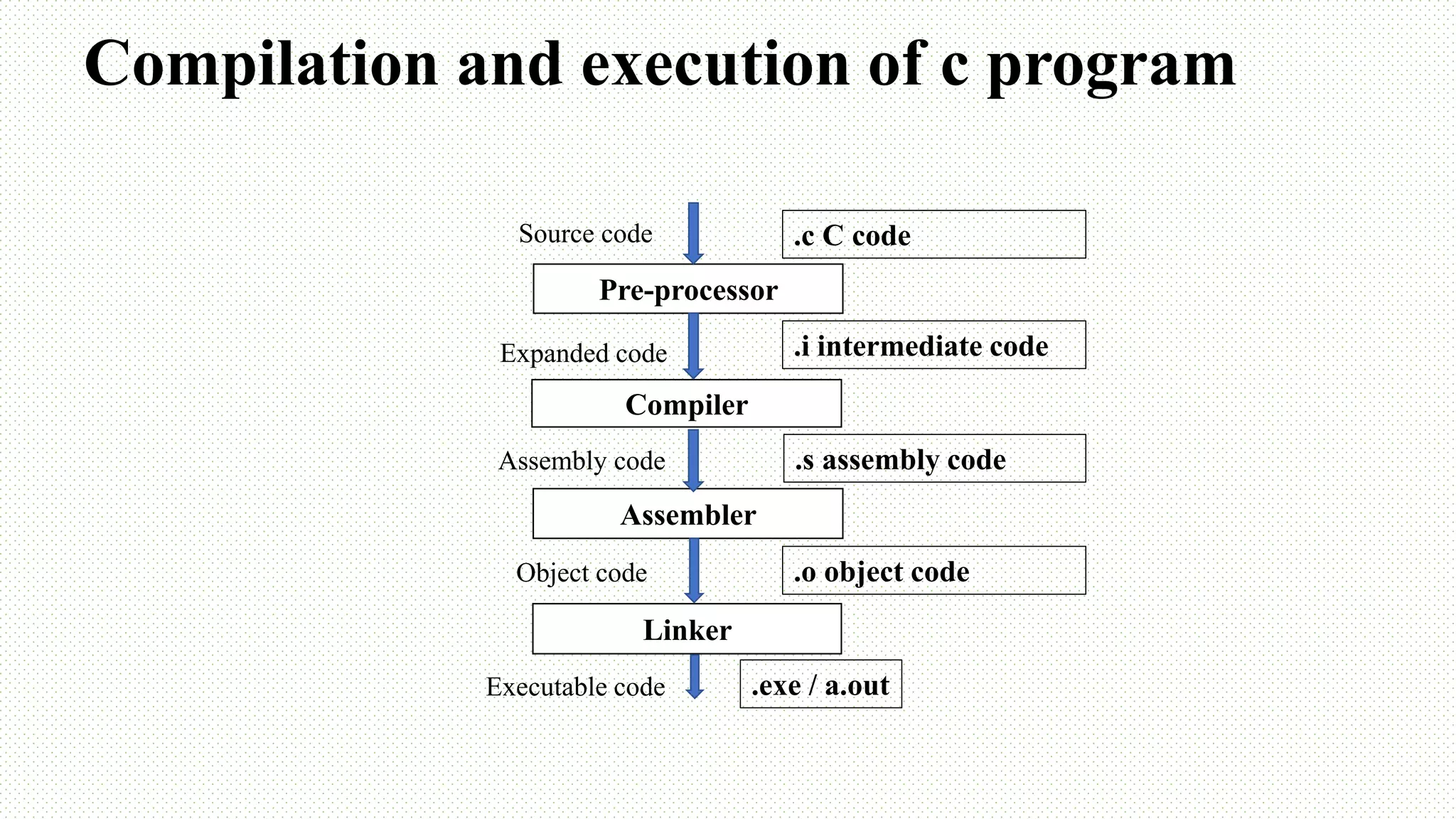
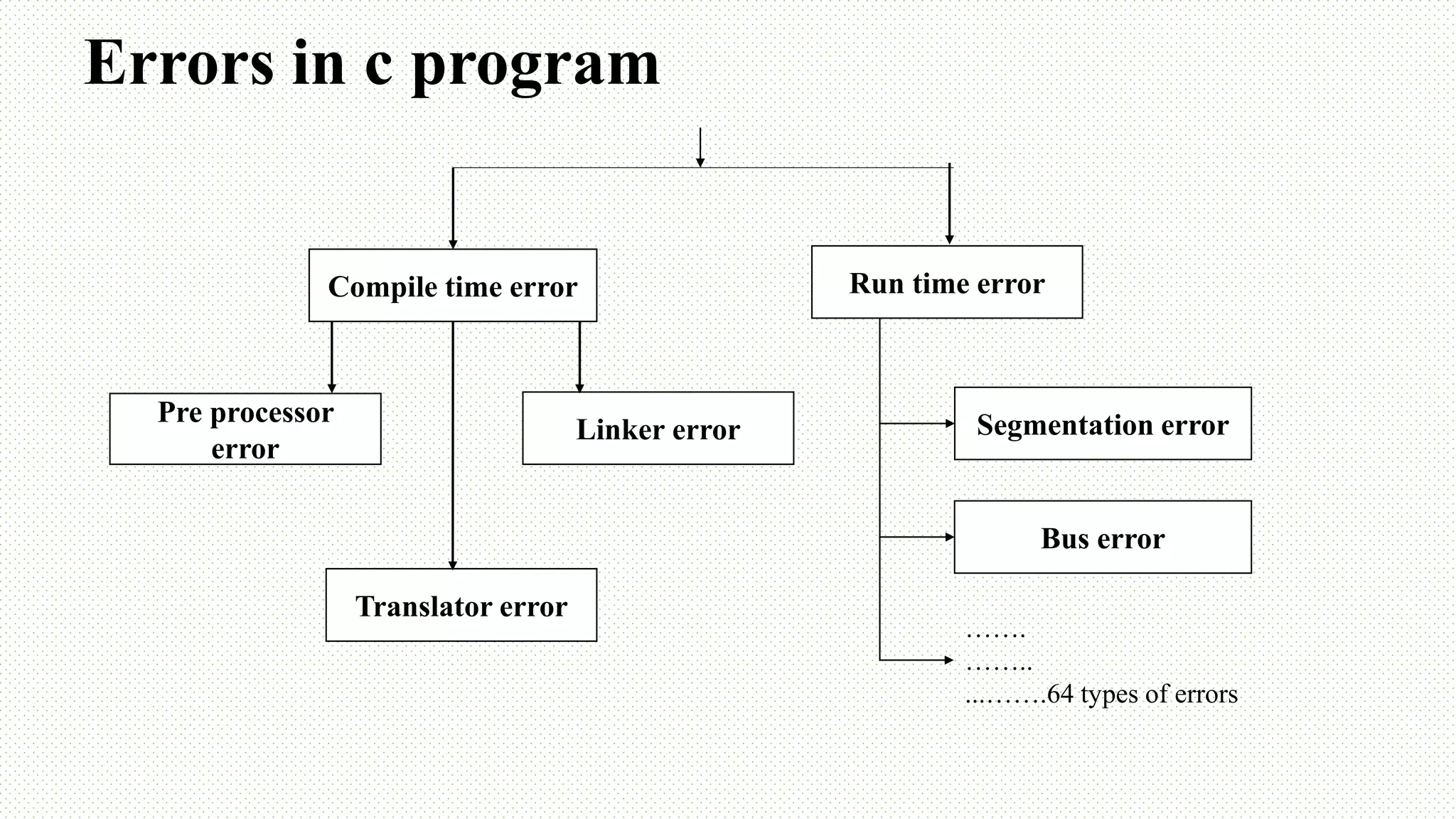
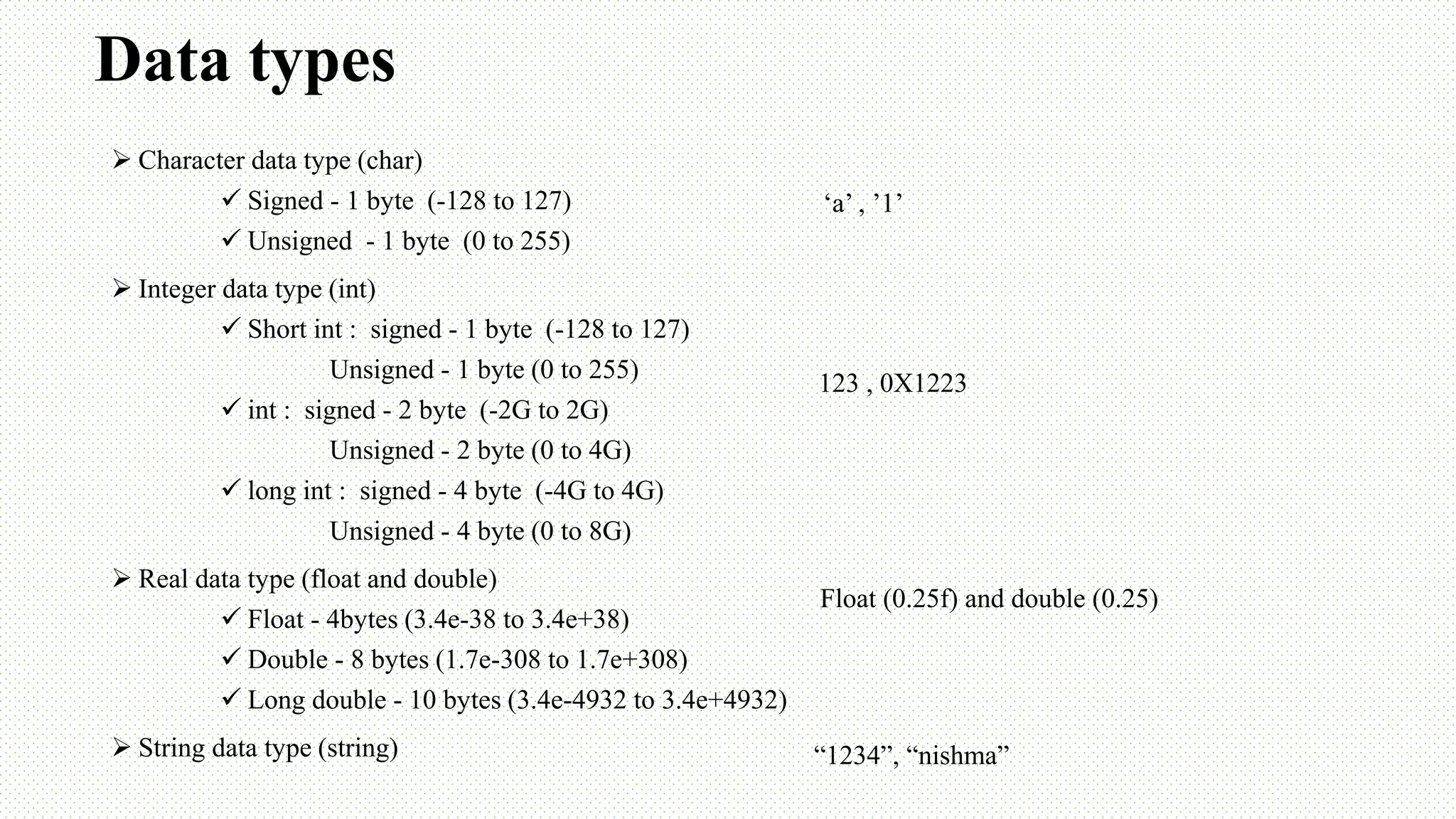
![Operators • Arithmetic operator ( + , - , * , / , % ) – binary – doesn’t change the value – result (value) • Relational operator ( > , >= , < , <= , == , != ) – binary – doesn’t change the value – result (0 or 1) • Logical or Boolean operator (&& , || , ! ) – binary – doesn’t change the value – result (0 or 1) • Conditional operator ( [? :] ) – ternary – doesn’t change the value – result (true stat or false stat) • Bitwise operator ( & , | , ~ , << , >> ,^ ) – binary – changes the value • Increment and decrement operator ( ++ , -- ) – unary – changes the value • Size of operator ( sizeof() ) –unary –doesn’t change the value](https://image.slidesharecdn.com/1introductiontocprogram-190907073907/75/1-introduction-to-c-program-6-2048.jpg)
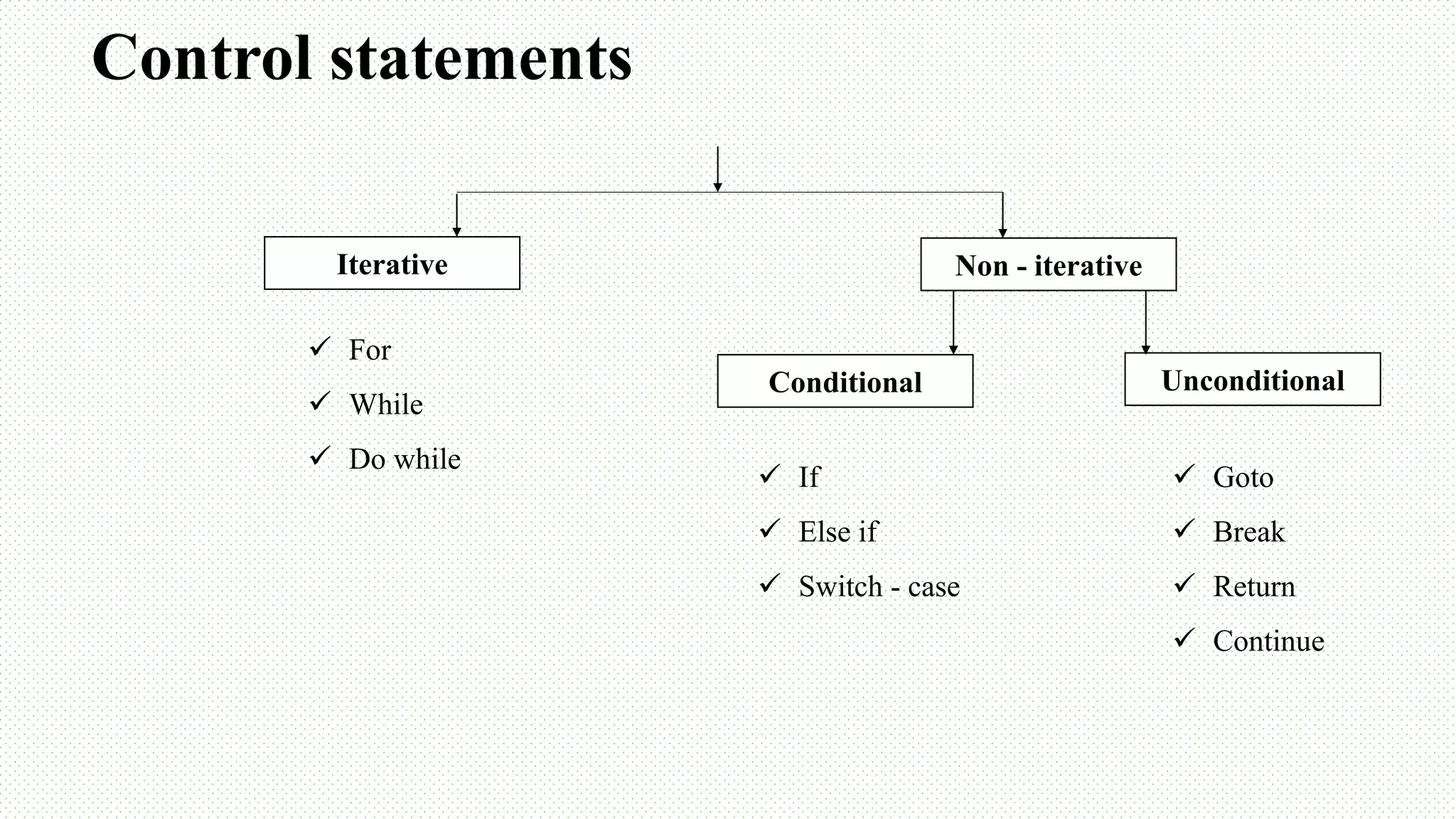
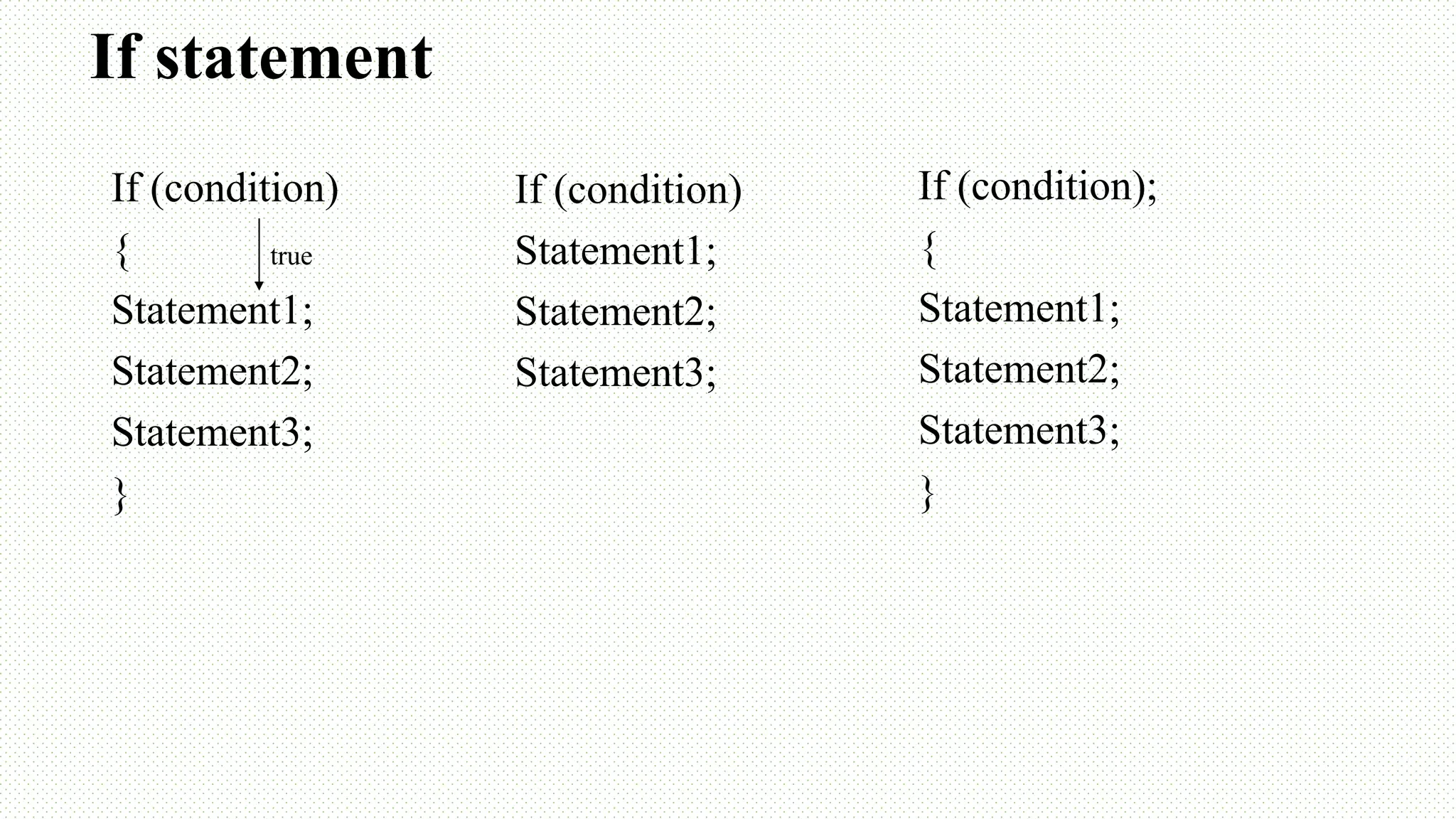
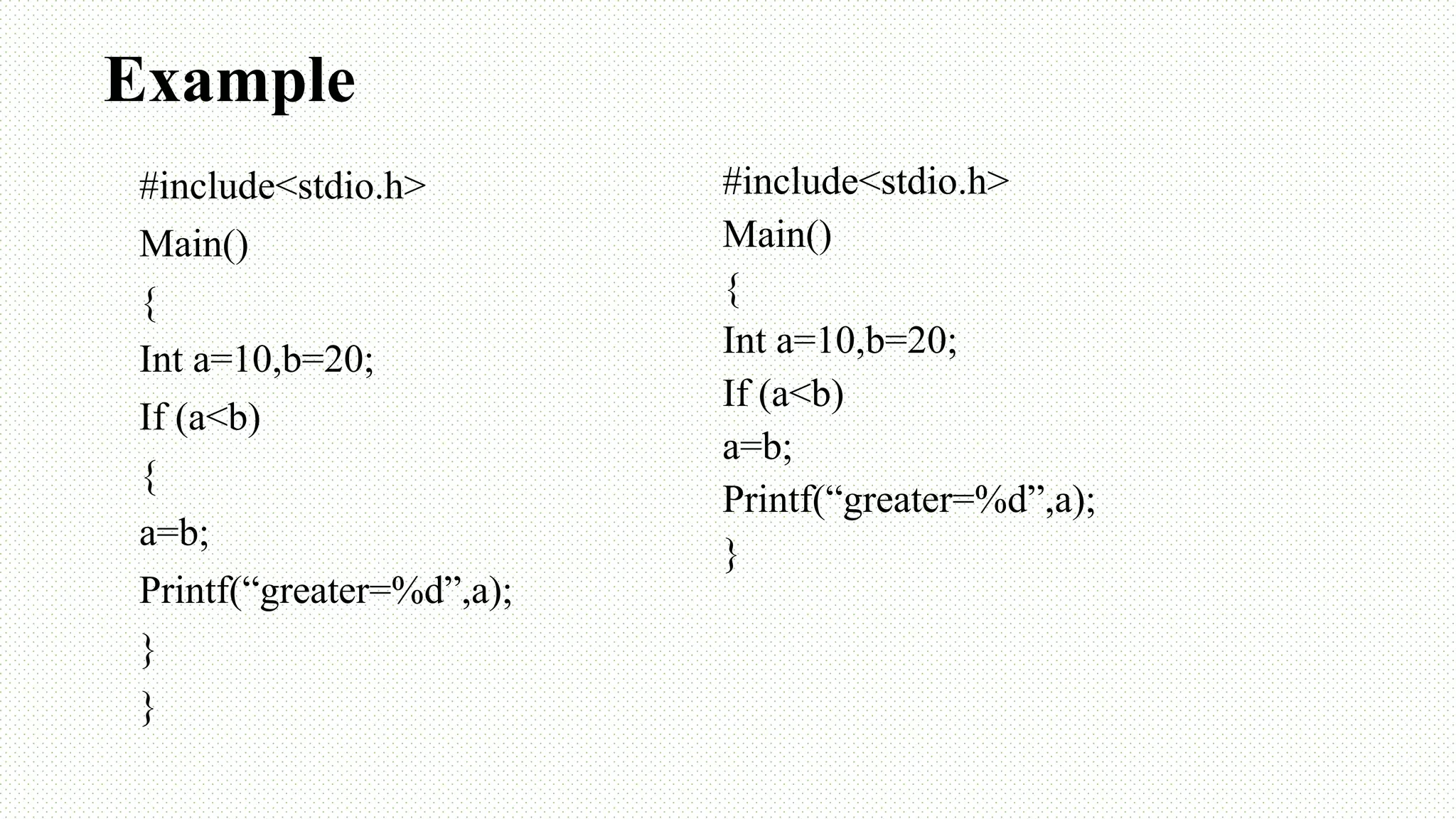
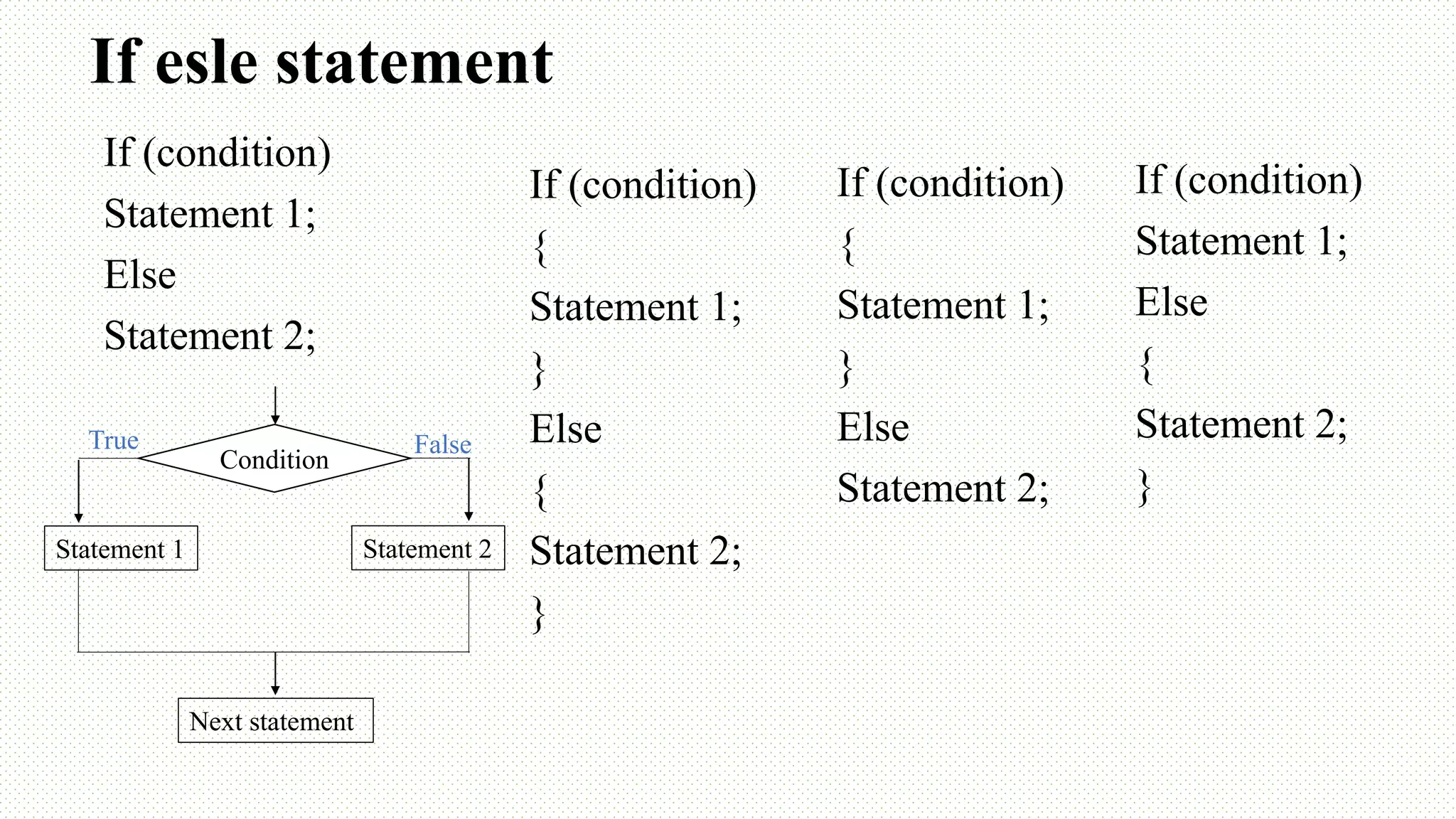
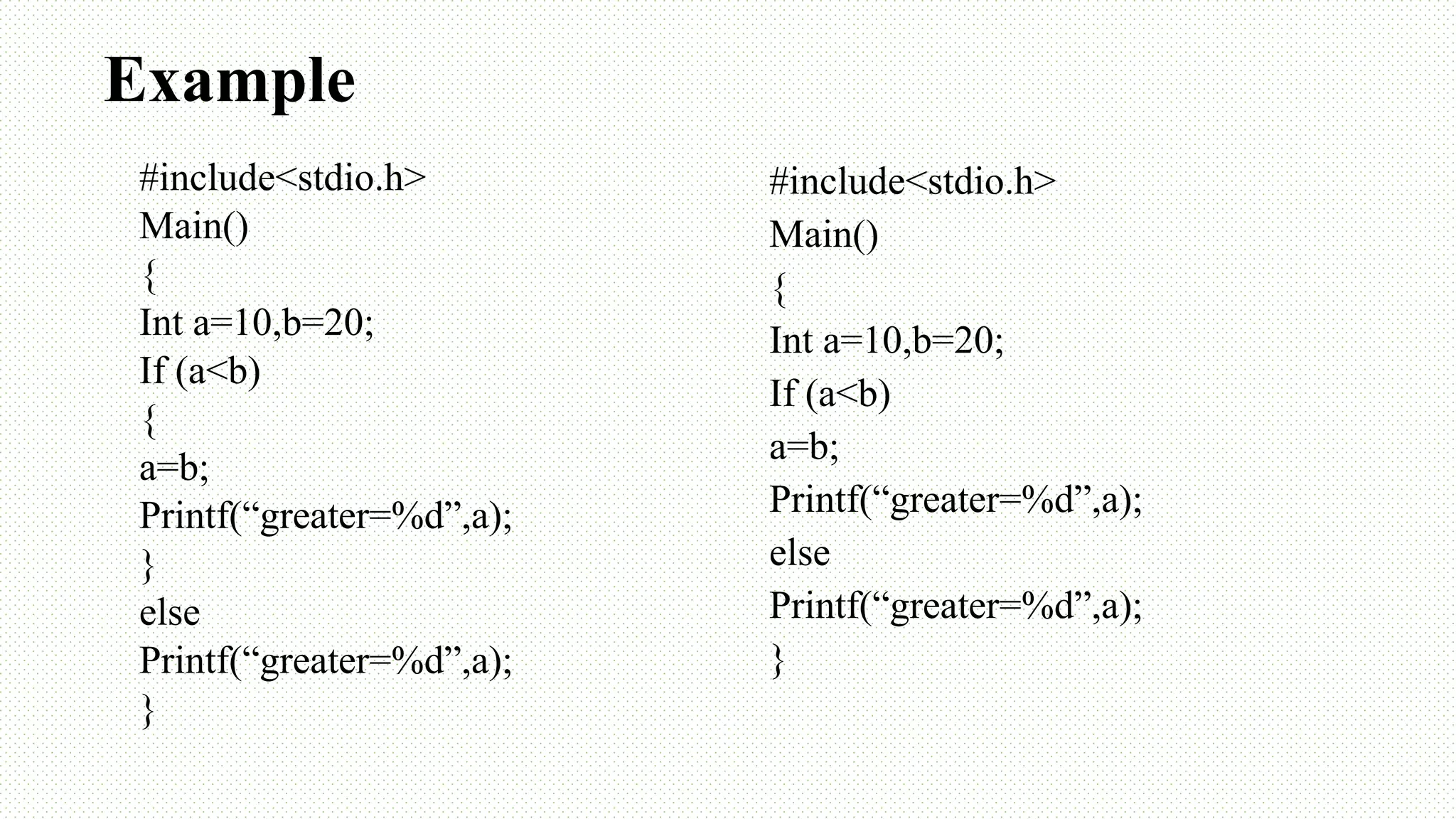
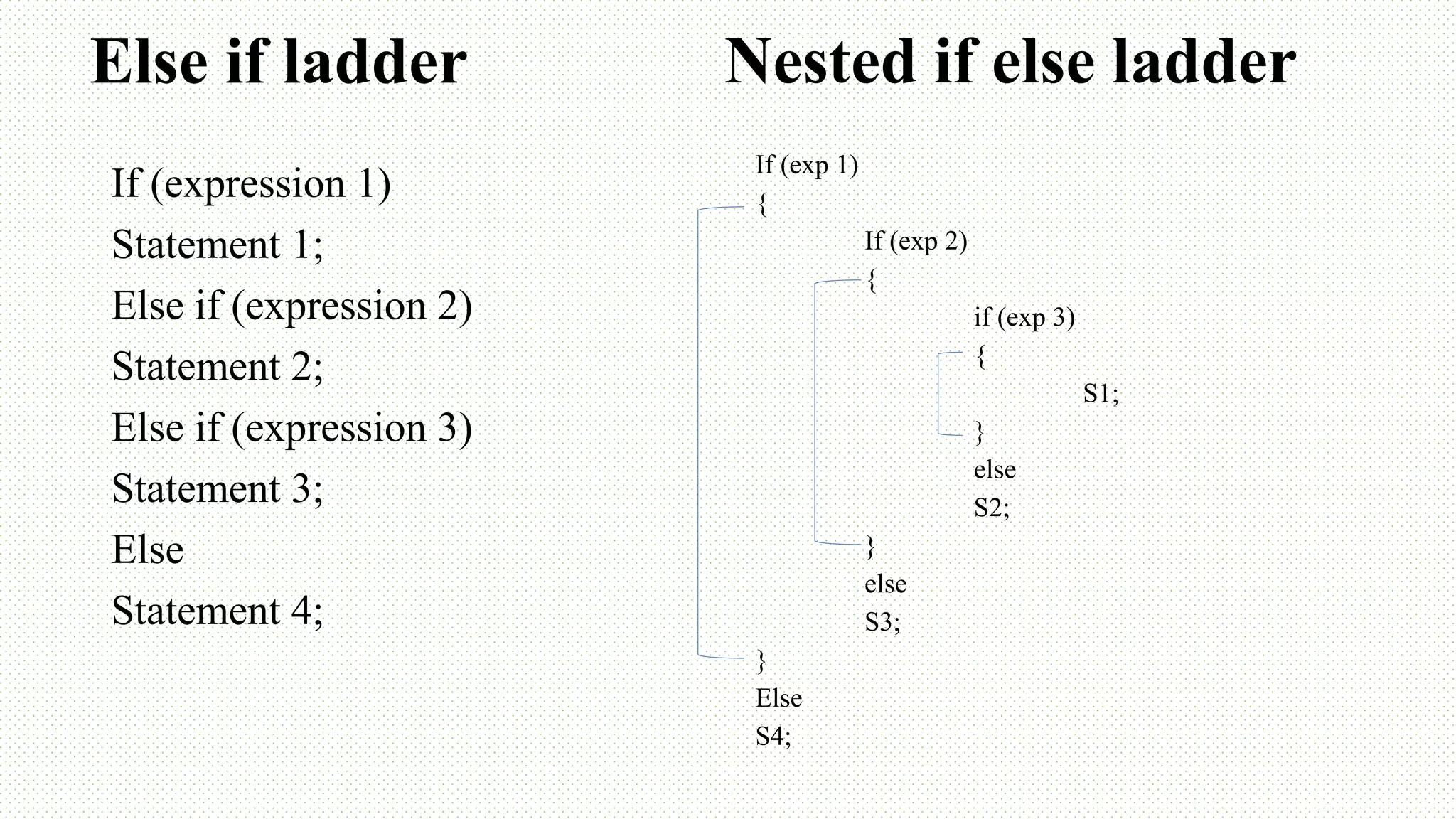
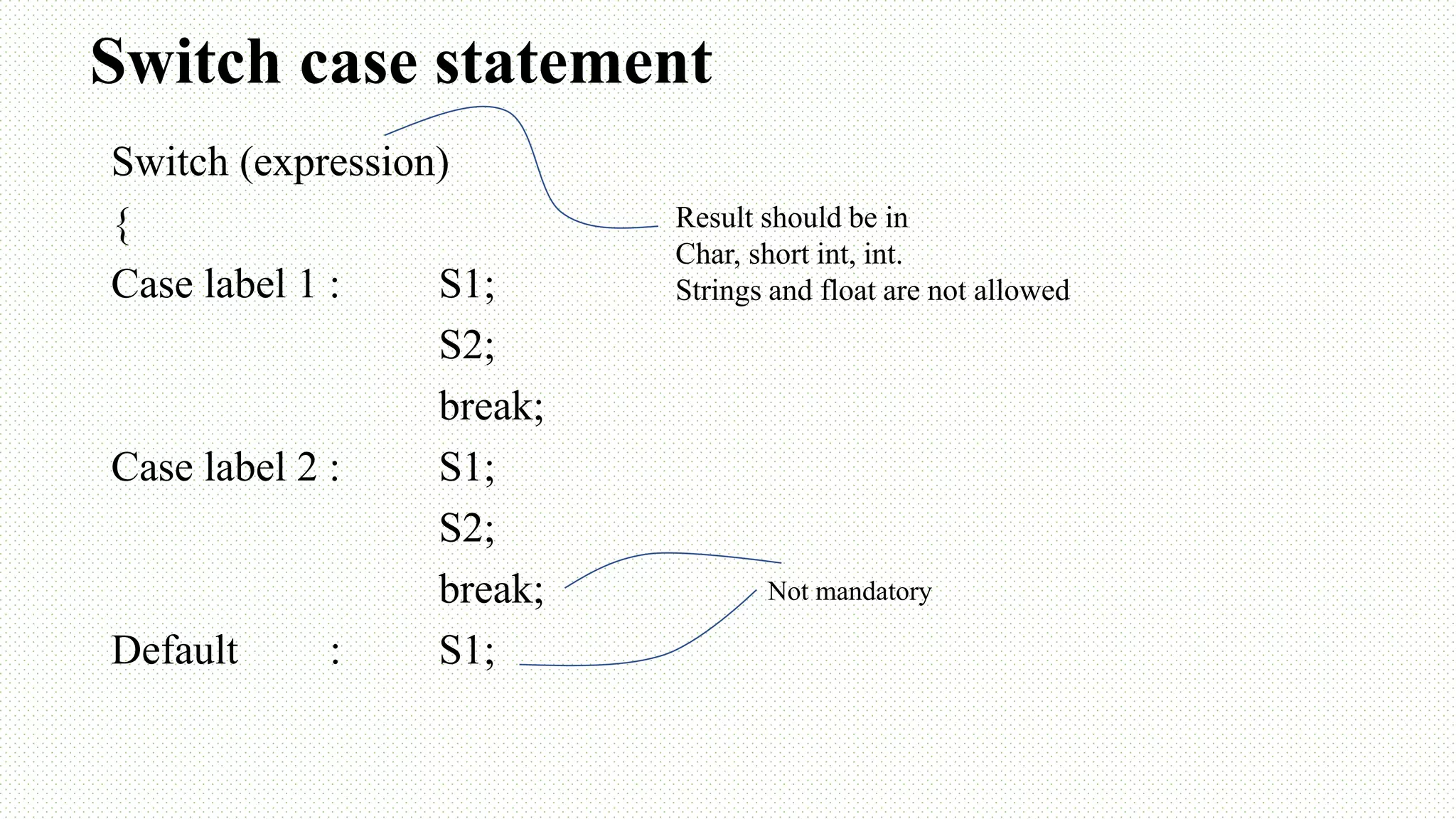
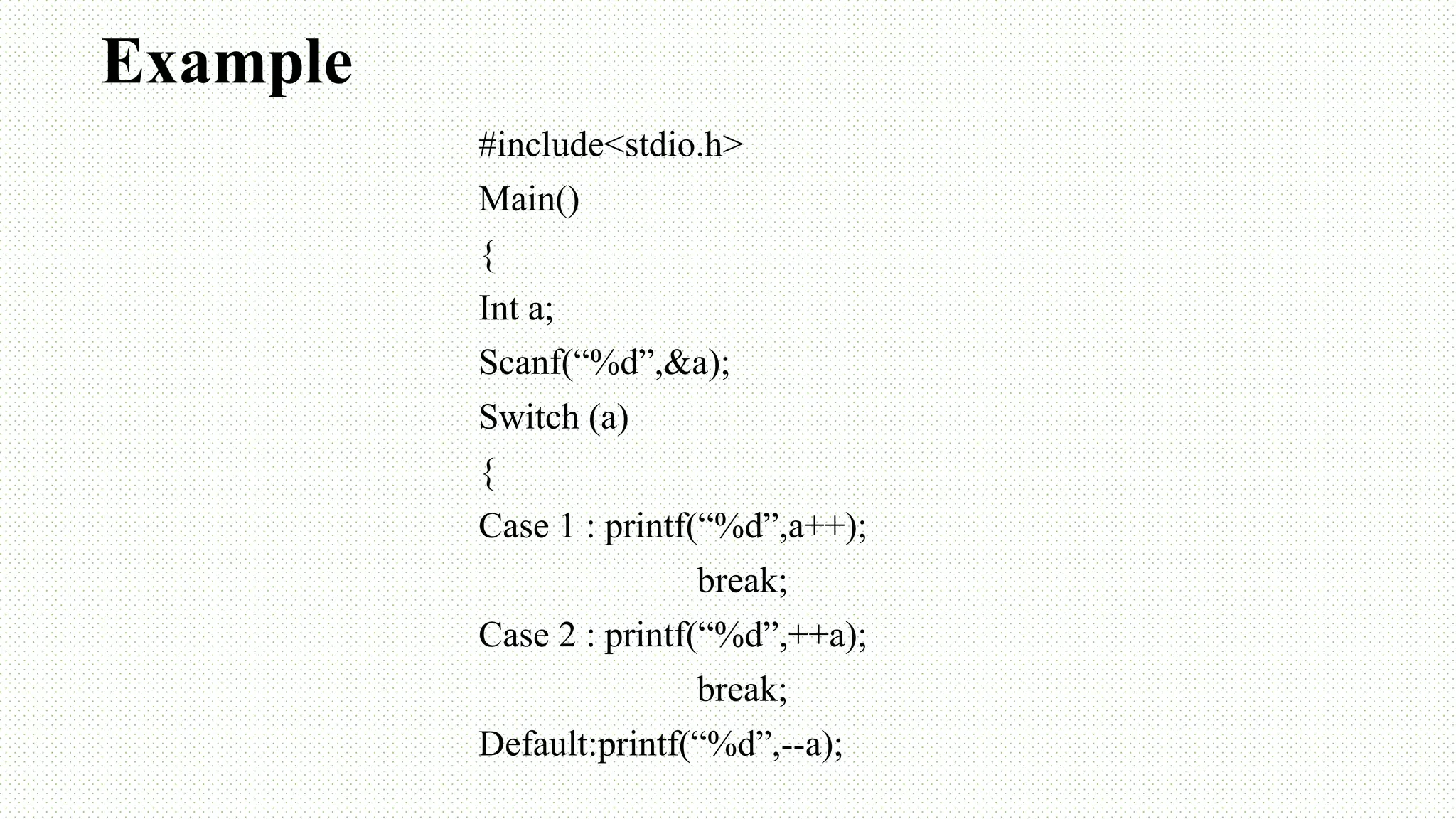
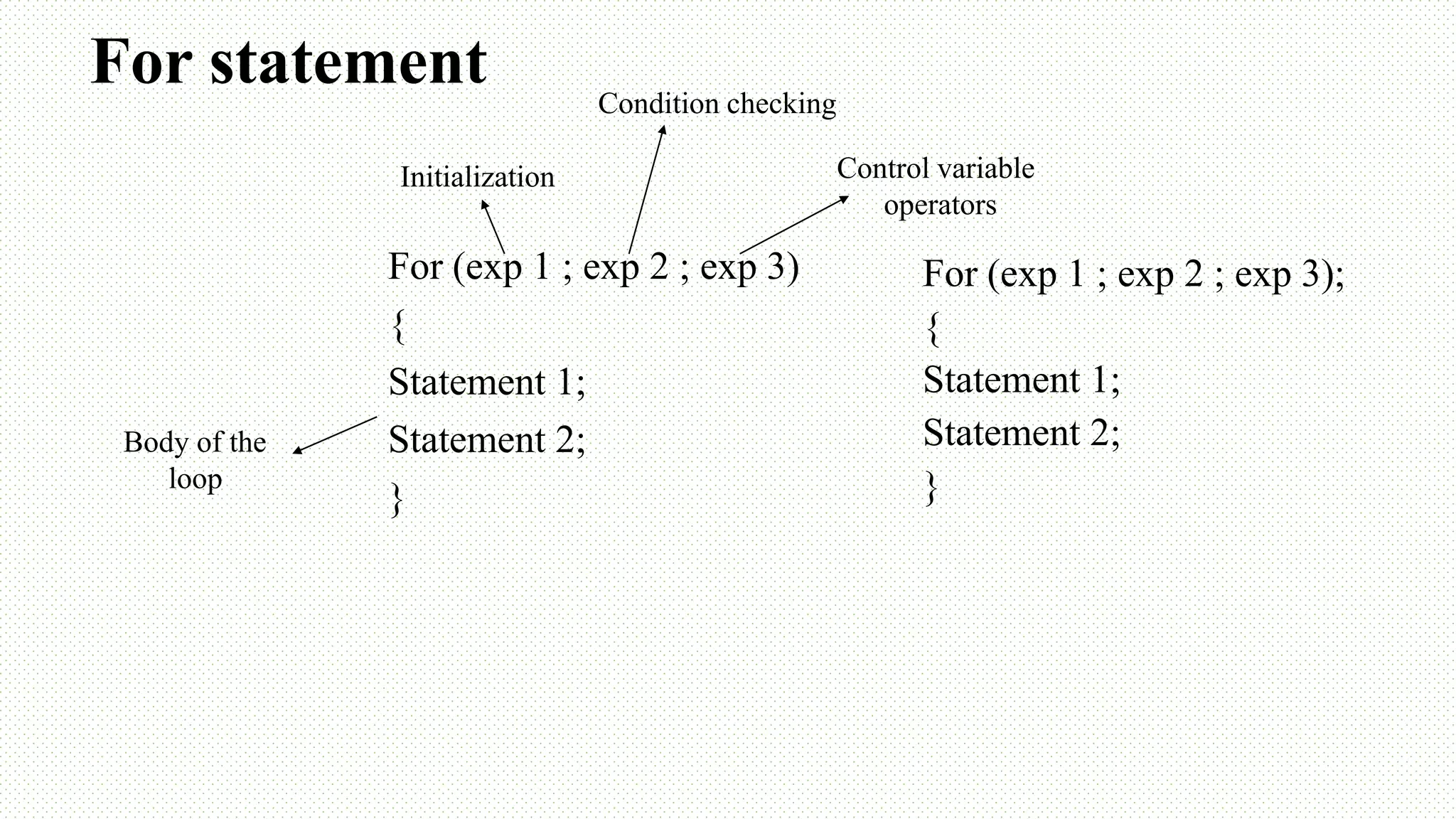
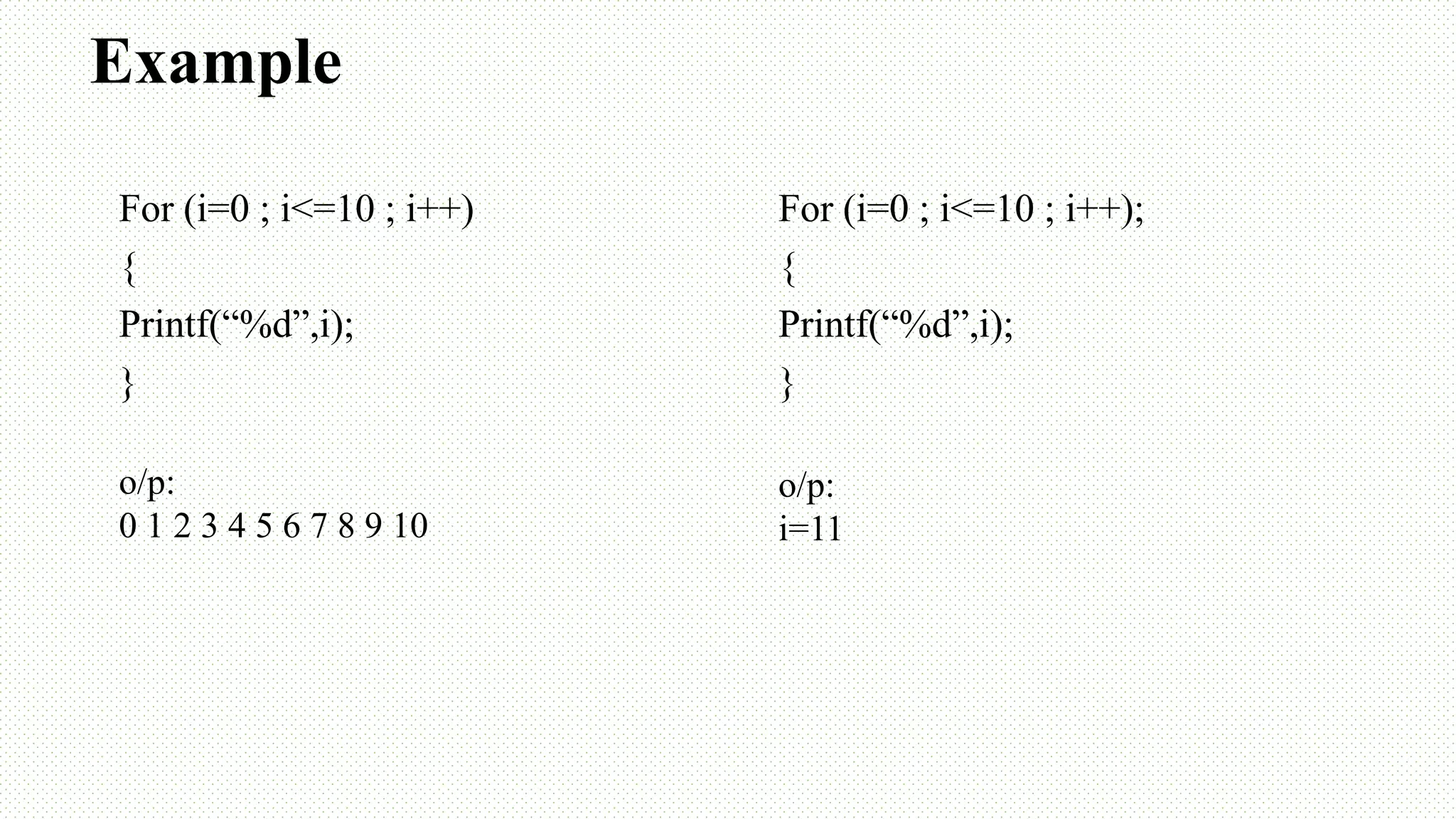
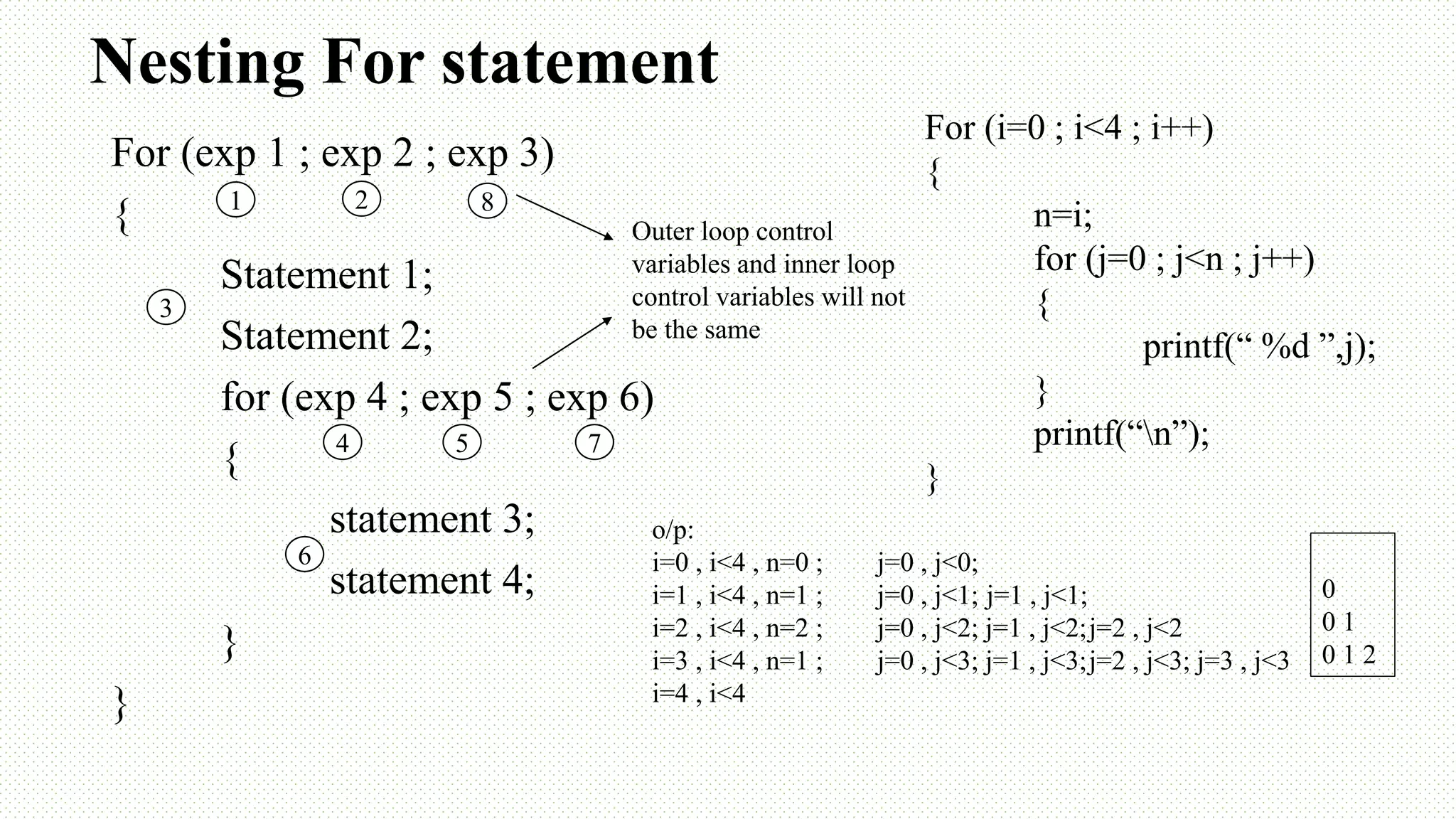
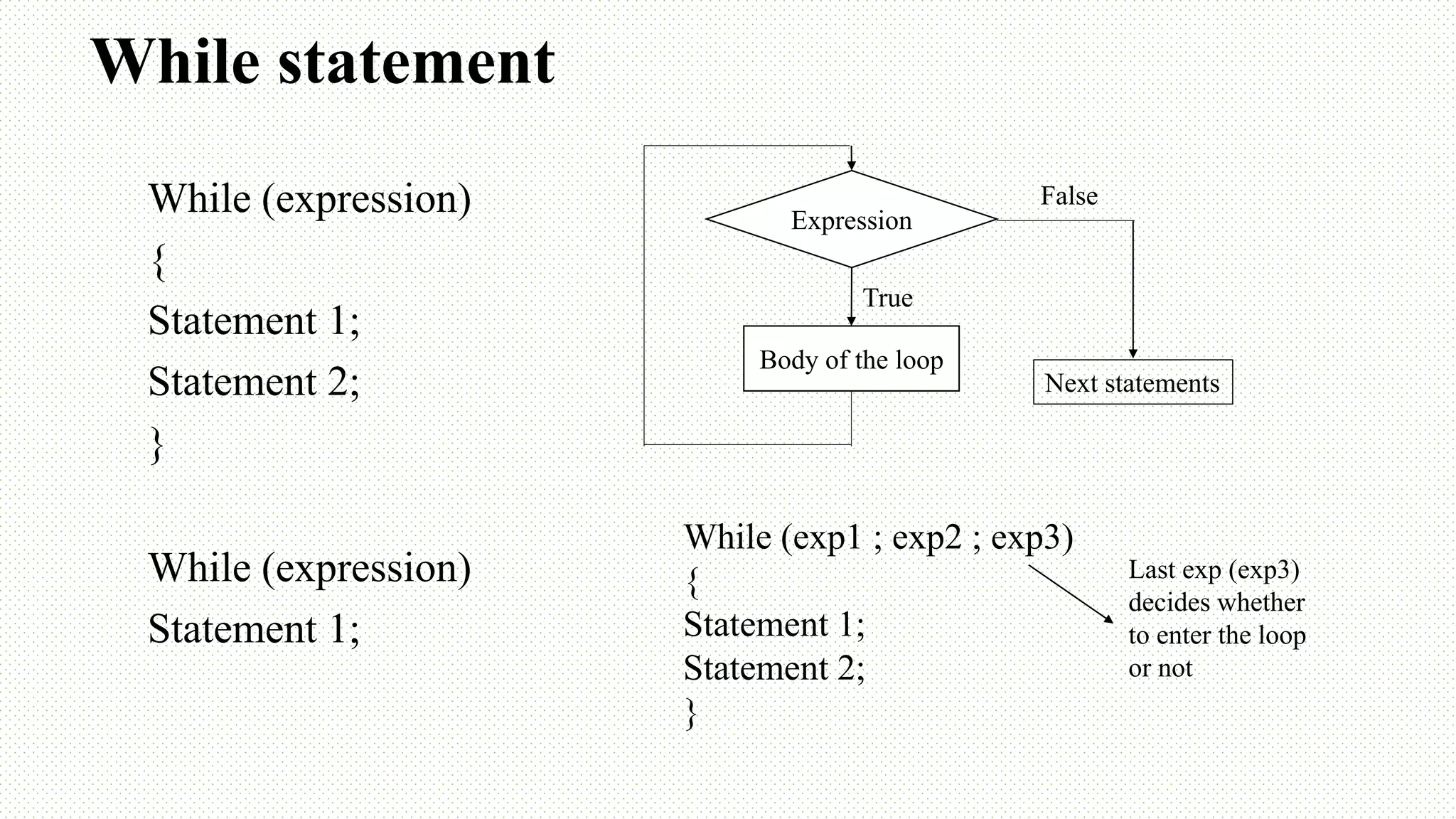
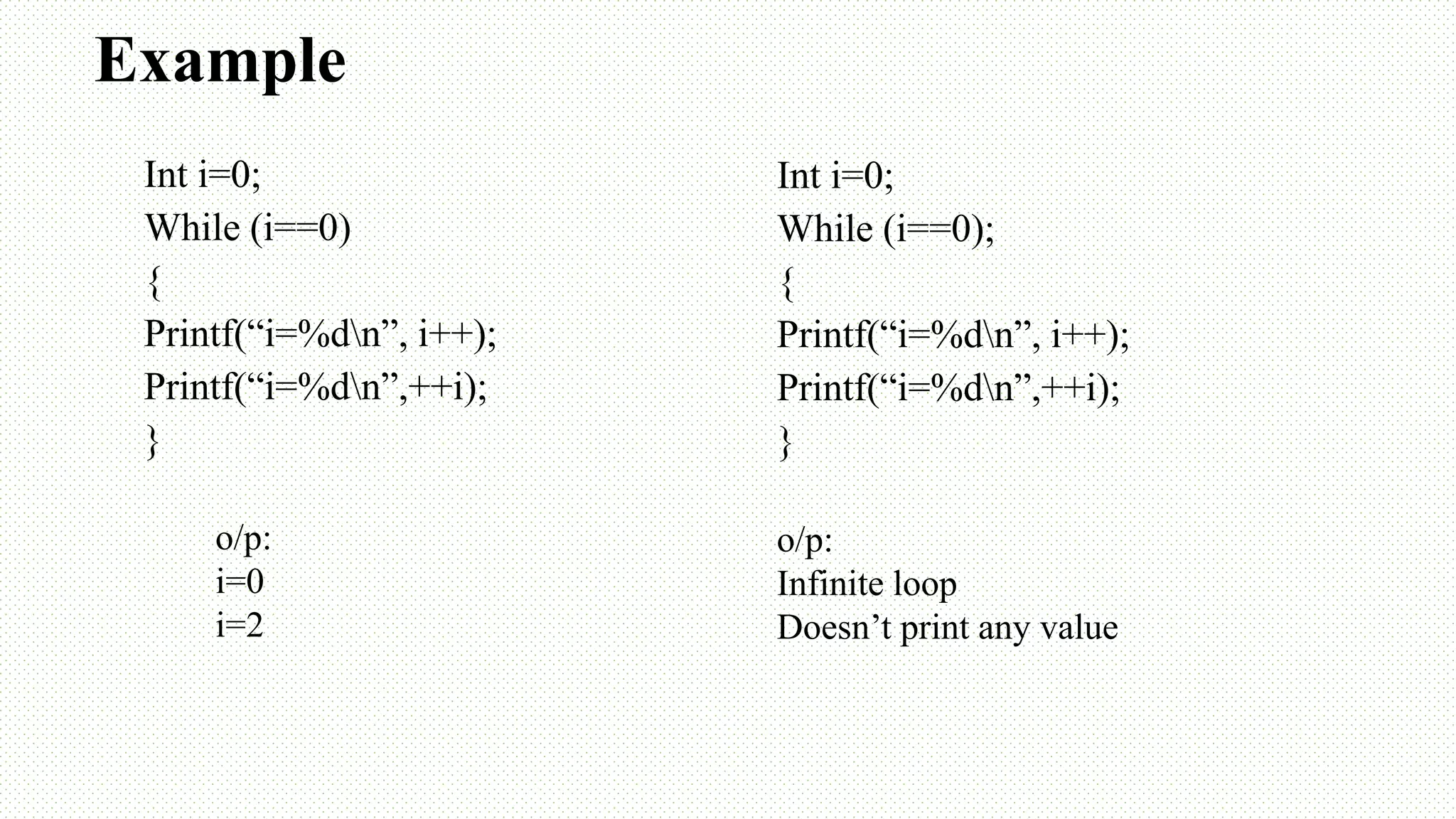
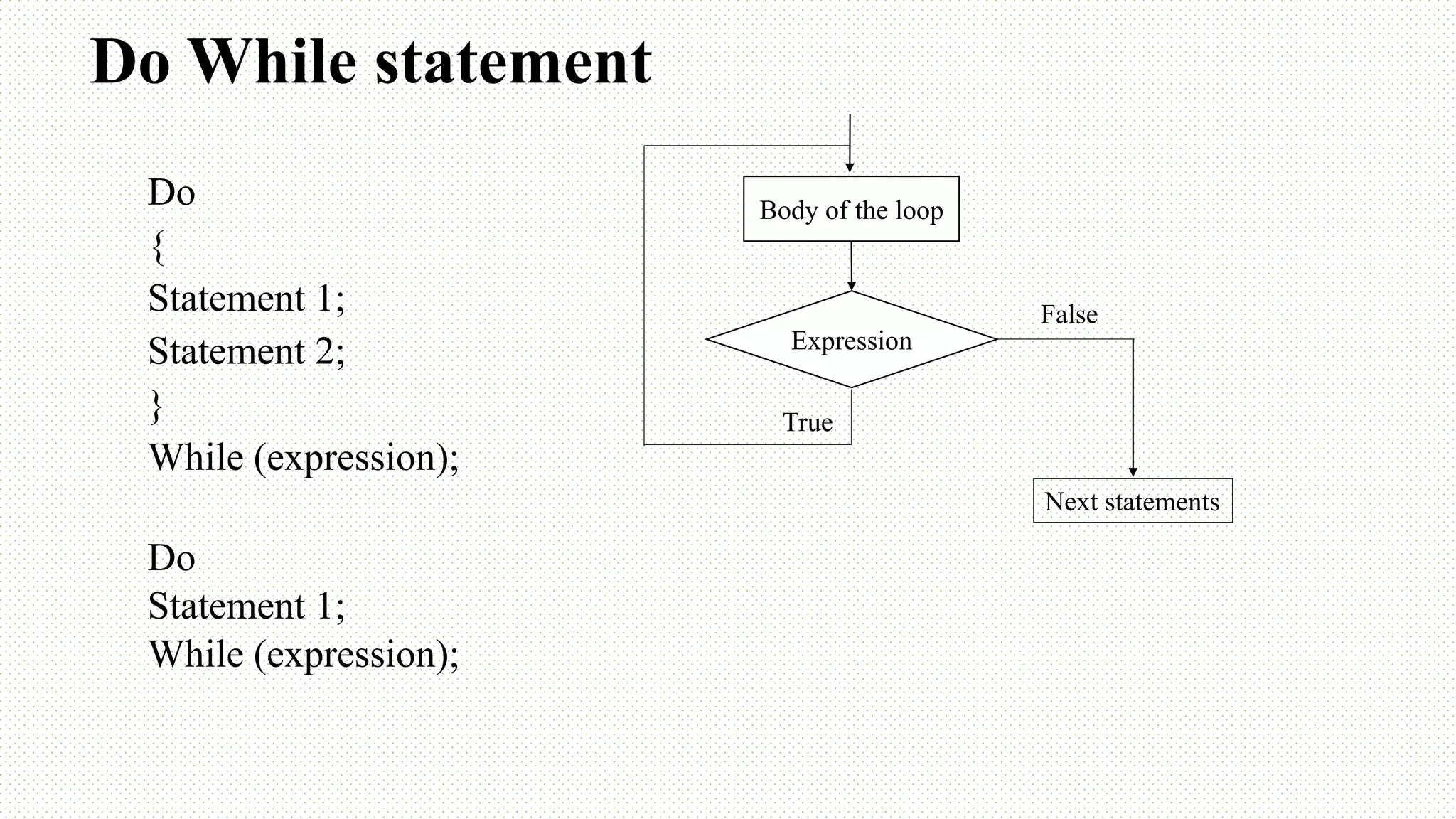
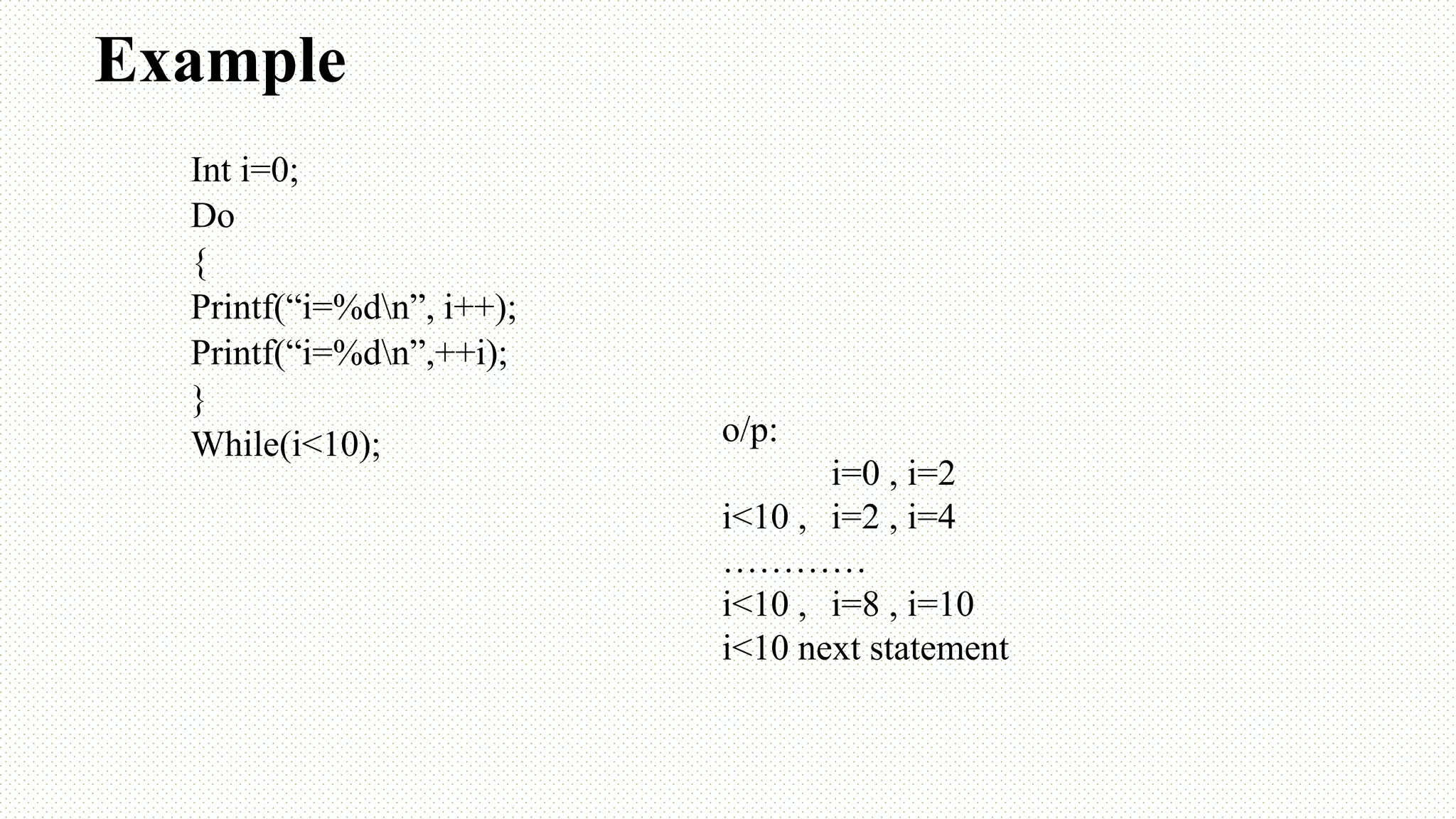
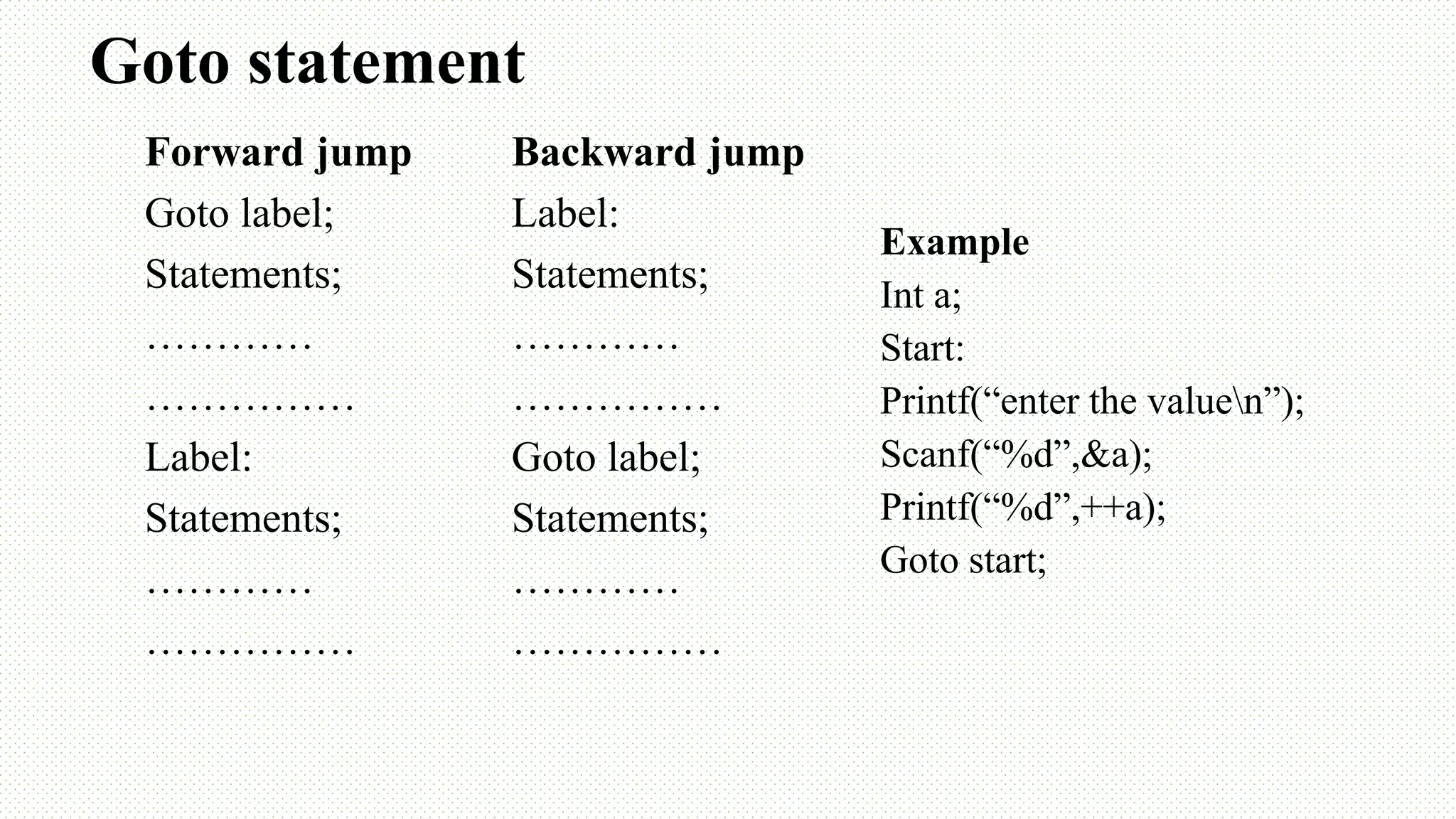
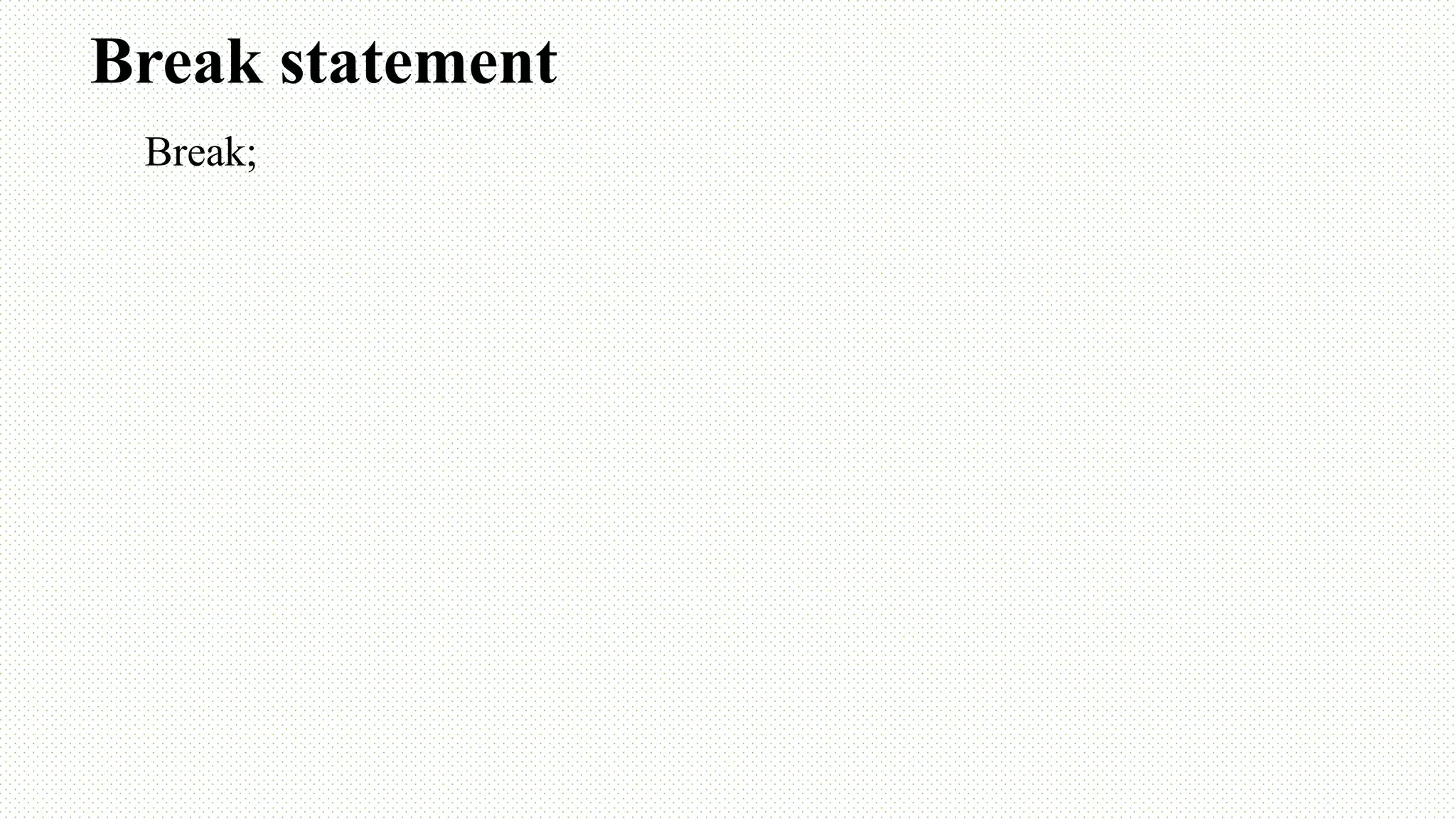
![Arrays Data_type array_name [index]; No of elements in the array To scan For (i=0 ; a[i] ; i++) { Scanf(“%d”,&a[i]); } To print For (i=0 ; a[i] ; i++) { printf(“%d”,a[i]); } Array representation A[i]=i[a]=*(a+i) Example: Int a[6]; Int a[6] = {10,20,30,40,50,60}; 1D array](https://image.slidesharecdn.com/1introductiontocprogram-190907073907/75/1-introduction-to-c-program-24-2048.jpg)
![2D array To scan For (i=0 ; i<n ; i++) { for(j=0 ; j<m ; j++) Scanf(“%d”,&a[i]); } To print For (i=0 ; a[i] ; i++) { for(j=0 ; j<m ; j++) printf(“%d”,a[i]); }](https://image.slidesharecdn.com/1introductiontocprogram-190907073907/75/1-introduction-to-c-program-25-2048.jpg)
![Strings Data_type string_name [index]; Example: char s[6]; char s[6] = “hello”; No of elements in the string To scan For (i=0 ; s[i] ; i++) { Scanf(“%c”,&s[i]); } Or Scanf(“%s”,s); To print For (i=0 ; s[i] ; i++) { printf(“%c”,s[i]); } Or Printf(“%s”,s); It is a collection of characters terminated by a null symbol (‘o’)](https://image.slidesharecdn.com/1introductiontocprogram-190907073907/75/1-introduction-to-c-program-26-2048.jpg)
